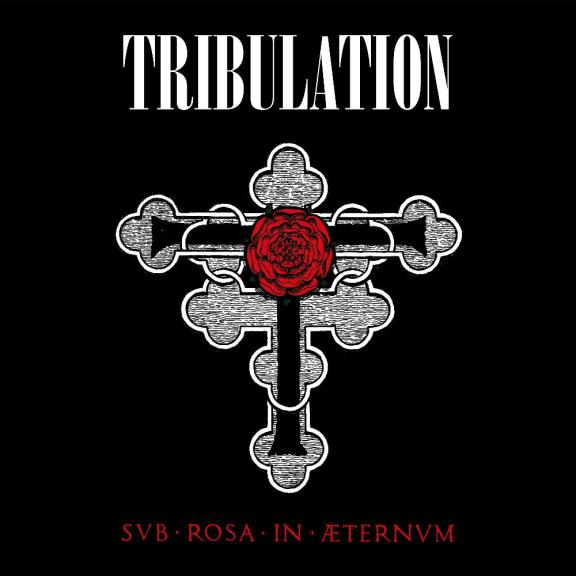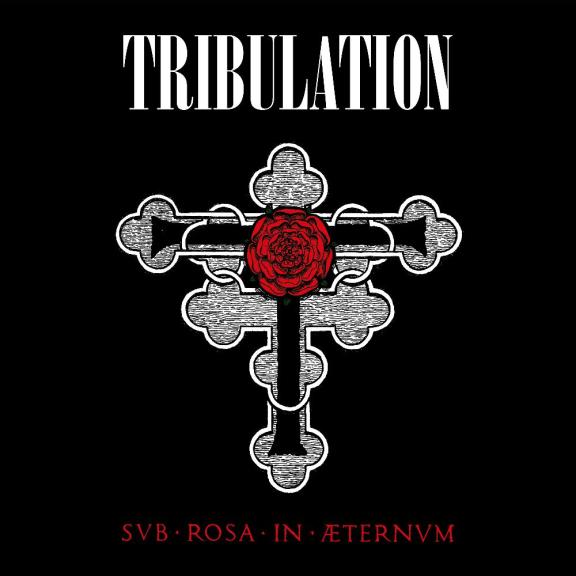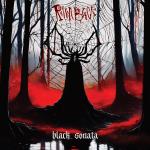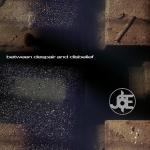Tribulation means "distress, suffering resulting from cruel or unjust treatment or misfortune"... or "a trying experience": Jonathan Hultén's departure, who was o important to the band's aesthetic, was quite a "trying experience" for the Swedes. And yet, just as they seemed stuck into some stagnation when Where the Gloom Becomes Sound, it also gave them the ideal opportunity to reinvent themselves, mourn his departure and move forward. Sub Rosa In Æternum appears to be a new beginning for Tribulation, but at the same time their logical continuation, a finally completed moult.
The biting aggressivity of their early death metal, already sublimated by baroque touches, had eventually shifted to a slower, heavier gothic and psychedelic metal. The Hamartia EP released in 2023 reassured us about the band's ability to keep their universe alive. However, there was a real rethink, notably on a cover of Blue Oyster Cult, where Johannes Andersson, usually a monolithic growler, took to the air with his unprecedented clear vocals.
Without a doubt, Sub Rosa In Æternum, despite its often funereal atmosphere, feels like a rebirth. The Unrelenting Choir imposes its mystery, its gothic heaviness... and Andersson, still in clear voice, sepulchral and full of ghostly echoes, seduces and surprises. Theatrical, sinister and more gothic than ever, Tribulation have a sense of the mystical and know how to turn up the heat. You almost feel as if you're watching them grow up before your very eyes in real time, while Tainted Skies, with its blatant post-punk shadows, and Saturn Coming Down Tonight still retain a few traces of saturated vocals that you'll only hear again on Time & The Vivid Ore whose instrumental interlude is as anachronistic as it is suspenseful. More importantly, we're swept away by a fatal groove that's both catchy and romantic.
Tribulation is likely to be divisive. The singer can no longer be criticised for a lack of variation in his singing, which now reminds us of The Sisters of Mercy, Fields of the Nephilim (a pretty obvious influence on a song like Drink the Love of God) or Moonspell in its deep, warm, cavernous, emphatic register. Guitarist Joseph Toll, replacing Hultén, has injected a real new vigour into the Swedes, who string together hymns from the vault. The pace slows, the fog thickens and melancholy creeps in with the backing vocals and keyboards of Hungry Waters. Tribulation have clearly studied the cold wave and gothic rock of the 80's, and their 70's psychedelic fetishism is still firmly entrenched, as illustrated by Murder in Red, the album's high point, with its John Carpenter-style synth intro, its dark poetry and its Goblin-style progressive madness.
It's in this taste for decades-old solo (for example, in The Reaping Song, which otherwise had a Nick Cave feel beyond its winking title) or hallucinatory baroque ornamentation that Tribulation continue to express their singularity and avoid wallowing in a cold-wave / gothic rock revival full of interchangeable bands. No track is dull, and all benefit from sound research and elaborate guitar work that meticulously weave together their macabre visions. With Sub Rosa In Æternum, it's not clear whether Tribulation are burying their past or rising from the ashes. Probably both: this is the surprise gothic rock album of the autumn, and our interest in the band's future has suddenly increased tenfold.






